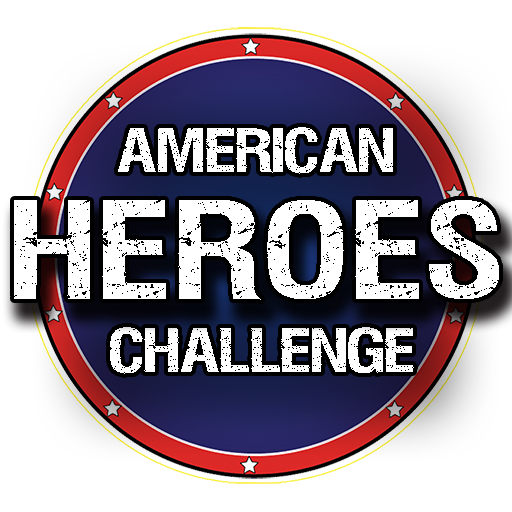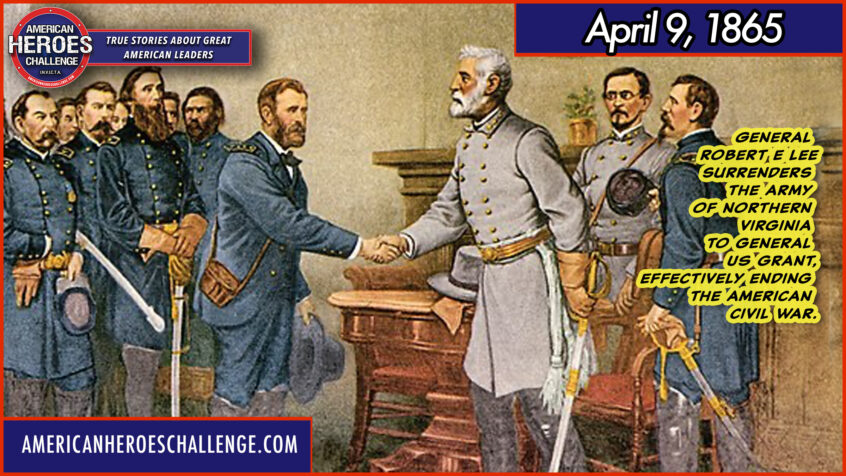Robert E. Lee surrendered the Army of Northern Virginia on this day in 1865, when his troops were trapped by the imminent link up of two massive Union armies.
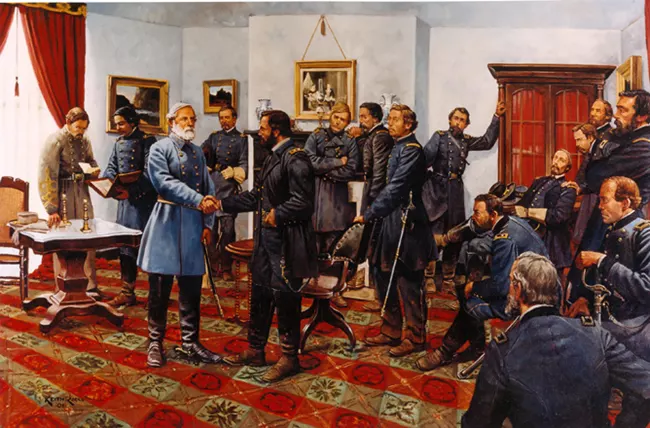
On April 8, General Geroge Custer, commanding the 3rd Division of Phil Sheridan’s Cavalry Corps, had seized the supply train at Appomattox. Lee’s only hope lay in breaking out past the Union cavalry.
Grant and Lee had communicated about surrendering for several days. Lee refused to give up, though he asked Grant what his terms were. Grant, suffering from a powerful migraine, declared that “it looks as if Lee still means to fight.”
The next morning, however, Confederate troops failed to break through the Union forces. Lee decided that, “Then there is nothing left for me to do but to go and see General Grant, and I would rather die a thousand deaths.”
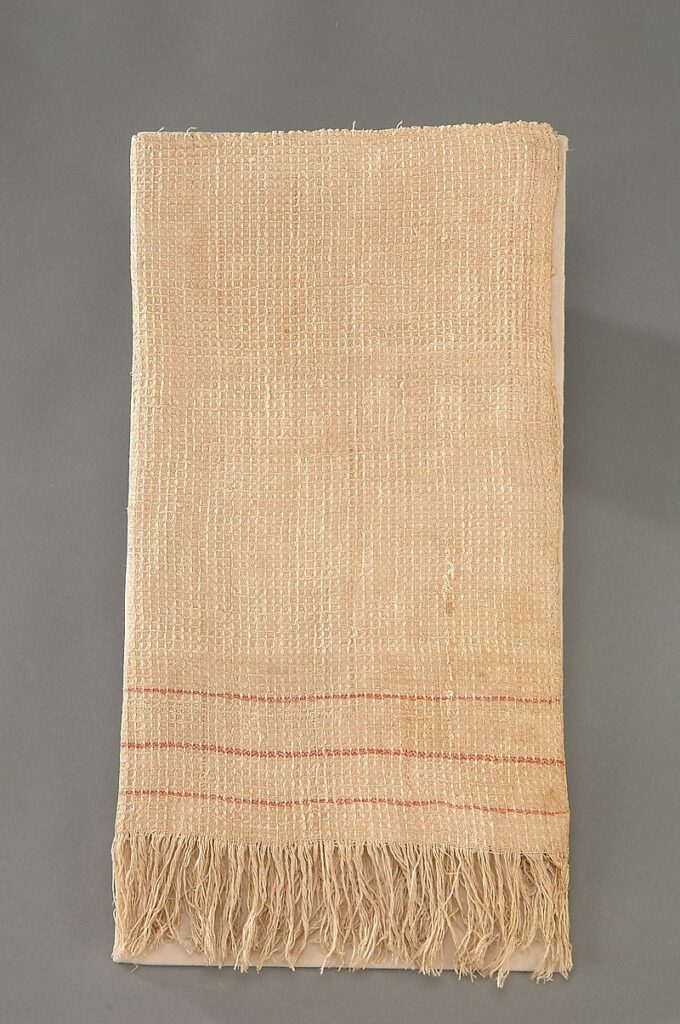
Waiving an improvised truce flag – an old dish towel – Confederate forces asked Custer’s command for a suspension of fighting. Grant’s migraine disappeared when he received Lee’s request to meet and readily accepted.
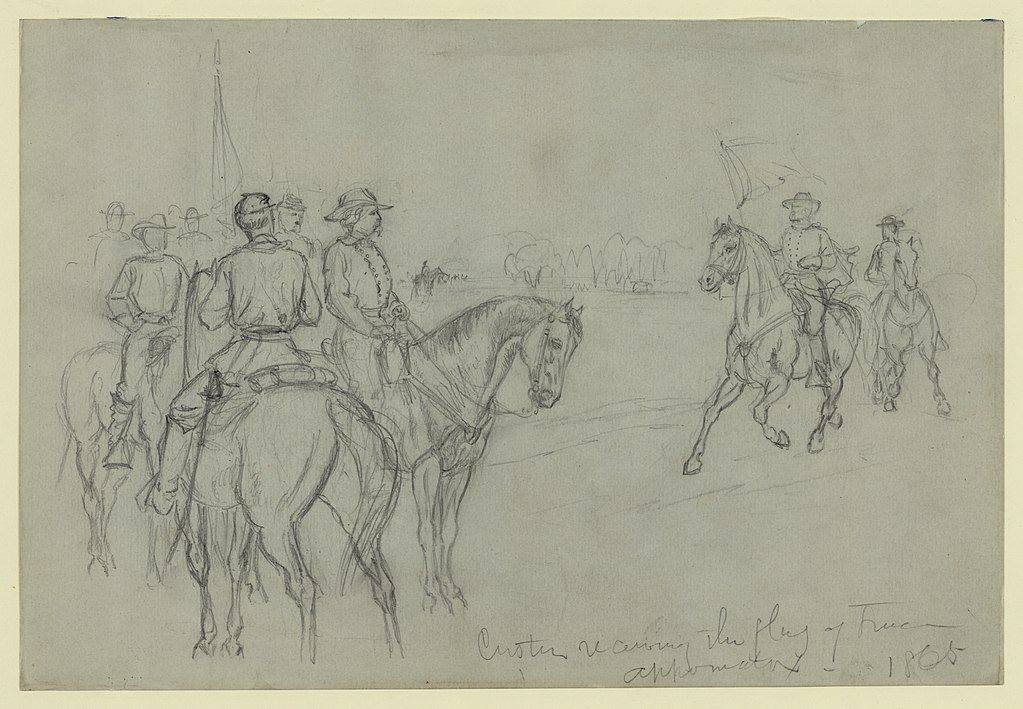
Confederate scouts picked Appomattox Courthouse, a small village on the on the Richmond stage road, and selected Wilmer McLean’s home for the meeting between the two commanders.
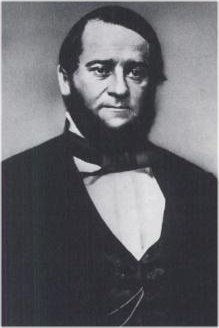
McLean, a 49 year old grocer, has moved to Appomattox after his first home became the epicenter of the First Battle of Bull Run. Ironically, the closing negotiations of the Civil War would now take place in his living room.
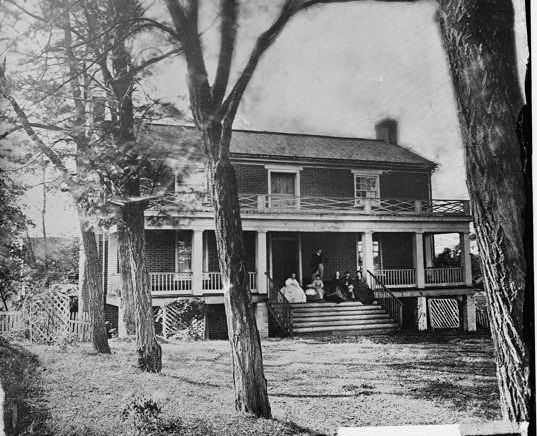
Lee wore his best uniform to the meeting, saying, “I may be taken prisoner today. I must look my best.”

Grant wore a mud splattered filed outfit, with a binocular case strapped over his shoulder.
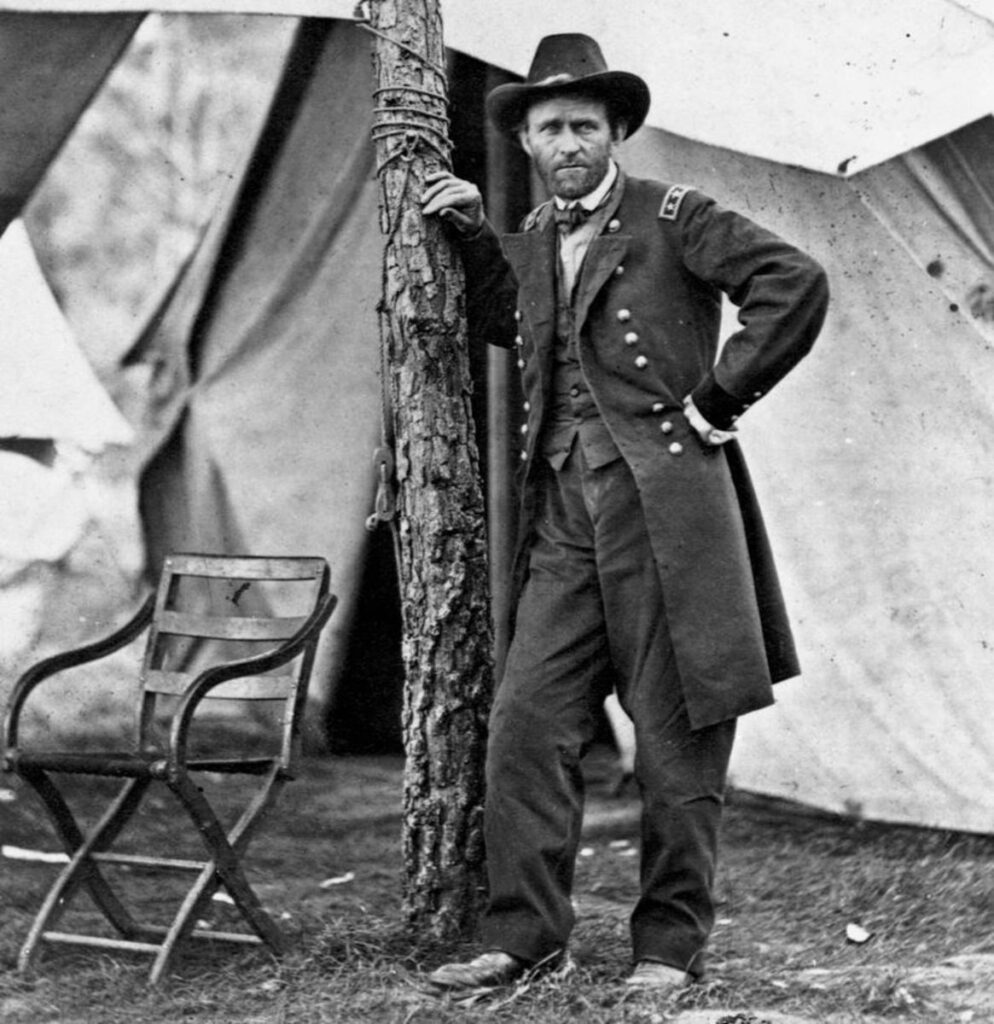
It was the first time the two men had seen each other in twenty years, since the Mexican War, where Grant was a brevet Captain and Lee a major.
Grant offered generous terms, paroling instead of imprisoning Lee’s army, allowing Lee’s officers to carry their side arms home, and, in a final stroke, letting the Confederate troops keep their horses. Grant also ordered his quartermaster to supply rations to the starving Confederates.
Lee read Grants terms with appreciation, saying they would, “have a very happy effect among the men.”
Grant’s adjutant Ely S. Parker, a Native American of the Seneca tribe, recorded the terms. Upon leaning of Parker’s ancestry, Lee said that “It is good to have one real American here.”
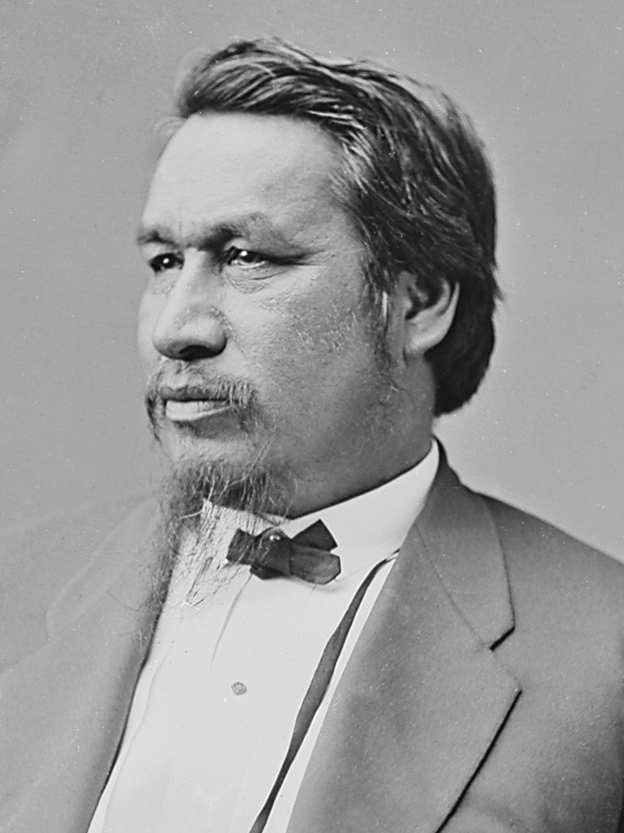
Parker’s answer: “Sir, we are all Americans.”
